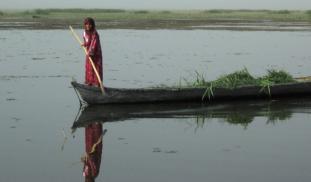Please wait...
About This Project
Collapse of the marsh ecosystems of southern Iraq after 1991 forced hundreds of thousands of people into urban slums, and led to contamination of the remaining water supply. We will establish three test beds to see whether brackish water returned from oil drilling and refining can be used to construct new salt marshes. These will filter water, provide forage for livestock, create habitat for fish nurseries, and give new economic opportunities.
More Lab Notes From This Project

Browse Other Projects on Experiment
Related Projects
Real-time underwater fish identification and biomonitoring via machine learning-based compression of video to text
Underwater monitoring of marine life has traditionally followed a "set it and retrieve it” approach due...
Combining eDNA & Biologging Technologies to Capture Deep-Sea Predatory Interactions Between Whales & Prey
We aim to combine eDNA sampling and biologging to study predator-prey interactions in the deep sea in real...
Can A Low-Cost Camera & Loitering Guard Better Monitor Marine Protected Areas?
Marine Protected Areas (MPAs) are difficult to enforce due to their remoteness and often invisible borders...


